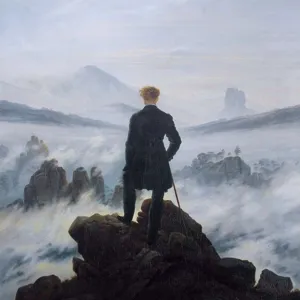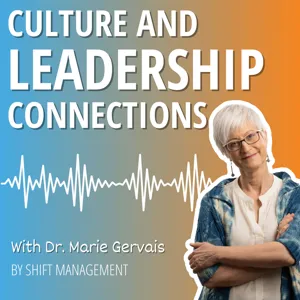Exploring Relationality and Emptiness | Voices with Vervaeke with Guy Sengstock

In this episode of “Voices with Vervaeke,” John Vervaeke and Guy Sengstock engage in a discussion about relationality, grief, and the sacred. Highlighting their upcoming Circling into Dialogos workshop, they delve into practices for realizing our interconnected nature, inspired by philosopher James Filler's views on relationality as the essence of being. The duo explores how grief exposes our lives as interwoven relational worlds, leading to a deeper comprehension of non-substantiality and connection. Their transformative workshop aims to cultivate better relationships with self, others, and ultimate reality, addressing the sacred amidst the meaning crisis and moving beyond adversarial thinking. This relational perspective, both transcendent and intimate, offers insights into a more responsive and holistic way of living. Listeners will gain an enriched understanding of how relational thinking can reshape our approach to life's challenges, opening doors to new meanings and deeper connections.
Guy Sengstock, the founder of the Circling method, is a renowned facilitator and innovator in the field of authentic communication and personal development. His method blends philosophical rigor with a deep understanding of relational dynamics, offering transformative experiences that foster genuine connection and self-awareness.
Glossary of Terms
Relationality: The quality of being relational, emphasizing the importance of relationships in understanding beings and the world.
Heidegger: A German philosopher known for his existential and phenomenological explorations.
Neoplatonism: A philosophical system that posits the existence of an ultimate reality or "One" from which everything emanates.
John Vervaeke
Website: https://johnvervaeke.com/
YouTube: https://www.youtube.com/@johnvervaeke
Patreon: https://www.patreon.com/johnvervaeke
X: https://twitter.com/vervaeke_john
Facebook: https://www.facebook.com/VervaekeJohn/
Guy Sengstock
Website: https://circlinginstitute.com/
Email: guysengstock@gmail.com
Join our new Patreon
https://www.patreon.com/johnvervaeke
The Vervaeke Foundation - https://vervaekefoundation.org/
Awaken to Meaning - https://awakentomeaning.com/
Workshop: Circling & Dialogos: The After Socrates Wisdom Intensive February 10-11, 2024
https://circlinginstitute.mykajabi.com/dialogos-and-circling-registration
Books, Articles, and Publications
https://www.amazon.com/dp/3031309065
-
Relationality as the Ground of Being: The One as Pure Relation in Plotinus - Filler, James (2019). International Journal of the Platonic Tradition
https://brill.com/view/journals/jpt/13/1/article-p1_1.xml
-
The Relational Ontology of Anaximander and Heraclitus - Filler, James (2022). Review of Metaphysics
https://muse.jhu.edu/article/872706
-
Heidegger, Neoplatonism, and the History of Being: Relation as Ontological Ground - Filler, James (2023). Springer Nature Switzerland.
https://link.springer.com/book/10.1007/978-3-031-30907-6
-
Religion and Nothingness - Keiji Nishitani
https://www.amazon.com/Religion-Nothingness-Nanzan-Studies-Culture/dp/0520049462
-
Supernatural Selection: How Religion Evolved - Matt Rossano https://www.amazon.com/Supernatural-Selection-How-Religion-Evolved/dp/0195385810/
-
Indeterminacy and Intelligibility - Brian John Martine https://www.amazon.com/Indeterminacy-Intelligibility-SUNY-Systematic-Philosophy/dp/0791411745/
Quotes
"There's a sacred dimension to this that is trying to be born right now, because we need to be born beyond the meaning crisis, and the sacred needs to be born." - John Vervaeke [00:45:26]
"That's what grief is. There's a hole in reality because relationality has been lost." - John Vervaeke [00:47:38]
"The ongoing practice involves continually reaching into, and being reached by this process. This relationality that is also an emptiness is so important. It just seems like it's the most important thing." - Guy Sengstock [00:58:10]
Chapters
[00:00:00] - Introduction to Guy Sengstock and the upcoming workshop.
[00:02:00] - Discussing James Filler’s book and relationality.
[00:14:00] - Exploring the significance of grief.
[00:29:00] - The relational nature of being and wisdom.
[00:42:00] - Delving into Zen philosophy and Neoplatonism.
[00:54:00] - The transformative power of grief and loss.
[01:10:00] - Concluding thoughts and reflections on relational ontology.


